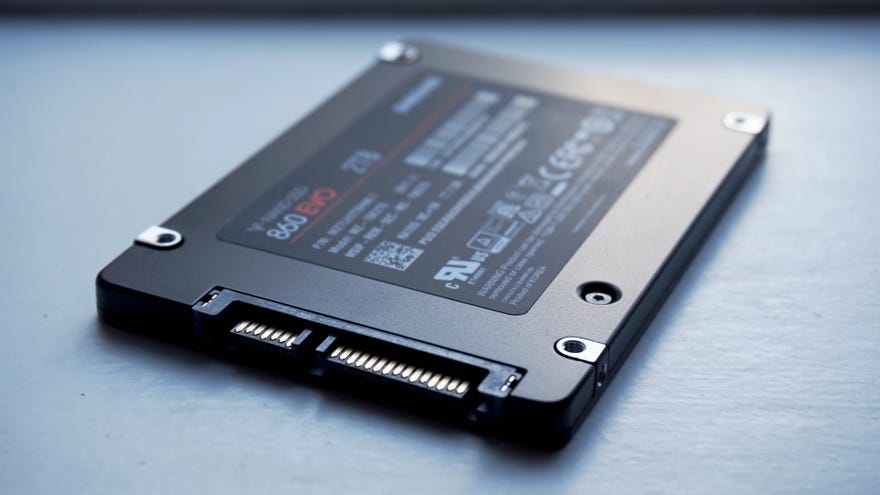Get a 1TB Samsung 860 Evo SSD for just £80 right now
That's its lowest ever price, too
Samsung's 860 Evo may have been recently replaced by the newer 870 Evo, but it's still one of the best SATA SSDs you can buy today, and its 1TB model has just dropped to a new all-time low price of £80 as part of Amazon UK's Spring sale. While not quite as cheap as yesterday's Crucial MX500 deal, this is still a great price for Samsung's nippy SATA drive. It's not only the first time it's dropped below the £100 mark, for example, but it also beats last year's Prime Day price by an impressive £20.
Indeed, the 1TB model is currently a much better buy than some of the 860 Evo's other size capacities right now. For example, the 500GB 860 Evo is still stuck at £60 at time of writing, while the 2TB model still goes for a whopping £220.
In fact, if it's a cheap 2TB SATA drive you're after, then you should take a look at the newer Samsung 870 Evo, whose 1TB and 2TB capacities are also on sale this week. The 1TB version is still quite a bit more expensive than the 860 Evo deal above, going for £99, but the 2TB model is a decent £164 - a drop of just under £40. This means it's actually cheaper than the 2TB model of Samsung's 870 Qvo at the moment, which has traditionally been Samsung's best value big SATA SSD.
Samsung 870 Evo (1TB) - £99 from Amazon UK (down from £135)
Samsung 870 Evo (2TB) - £164 from Amazon UK (down from £200)
If it's a Samsung NVMe drive you're after, though, then you'll be pleased to hear some of their super fast PCIe 4.0 980 Pro SSDs are also part of Amazon's Spring sale this week. Again, these are more expensive than their similarly-sized SATA counterparts, but the 500GB and 1TB prices of this ultra nippy SSD feature more all-time lows for their respective size capacities.
The 500GB model can now be had for £98, for example, which is a pretty sizable drop from its launch price of around £135, while the 1TB model is down to £163 (also another big drop from its launch price of £208 at the end of last year).
Samsung 980 Pro (500GB) - £98 from Amazon UK (down from £135)
Samsung 980 Pro (1TB) - £163 from Amazon UK (down from £200)
Why are PCIe 4.0 drives so much more expensive? Well, it's still relatively early days for PCIe 4.0 at the moment, but they're effectively the 'next-gen' equivalent for SSDs. The performance leap they offer over PCIe 3.0 NVMe drives is pretty much the same kind of leap you get from going from SATA to PCIe 3.0, and there are a lot of new and upcoming storage features such as Microsoft's DirectStorage tech that will rely on the speed enhancements offered by PCIe 4.0 to help cut down game loading times among other things.
You will, of course, need a PCIe 4.0 motherboard to get the most out of them, and until recently this was just AMD's B550 and X570 boards. Thankfully, Intel are also finally joining the PCIe 4.0 bandwagon with the launch of their 11th Gen Rocket Lake CPUs at the end of this month, and almost all of their 500-series motherboards will have PCIe 4.0 support as standard. You can still put these SSDs in PCIe 3.0 boards, of course, but naturally they'll be limited to PCIe 3.0 speeds.

